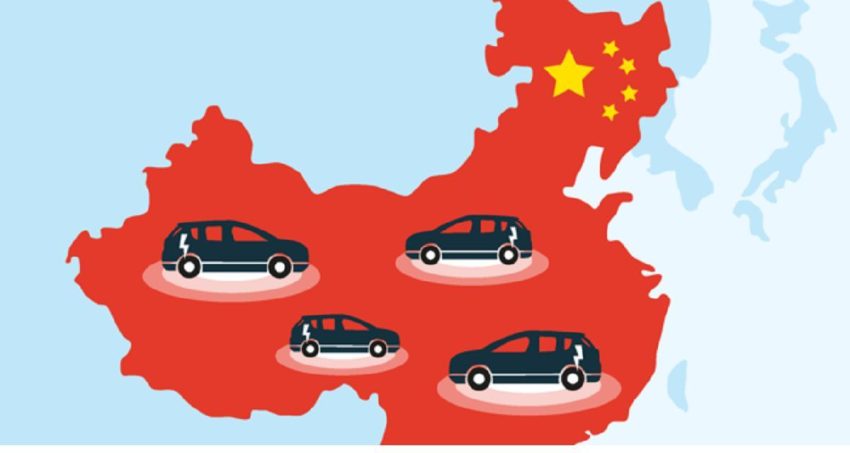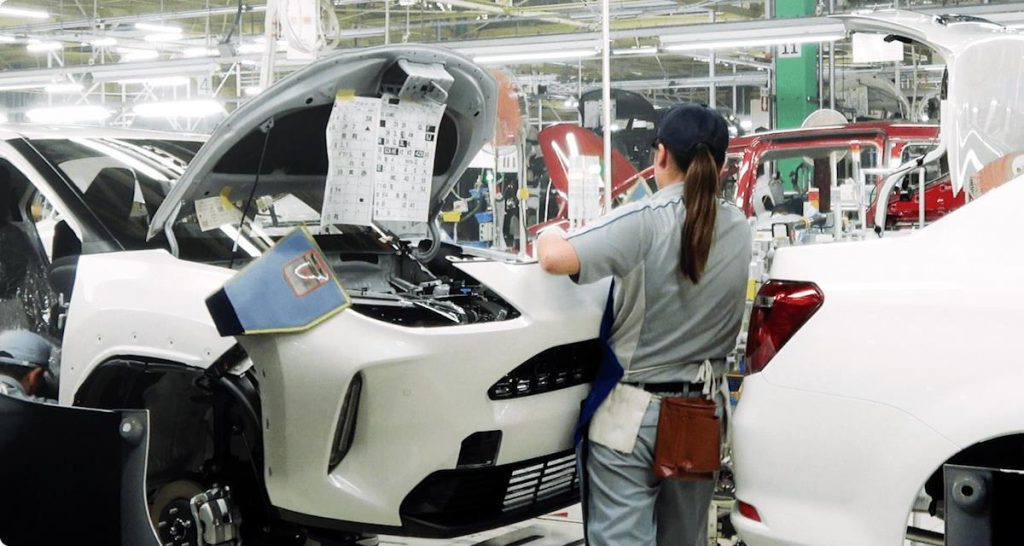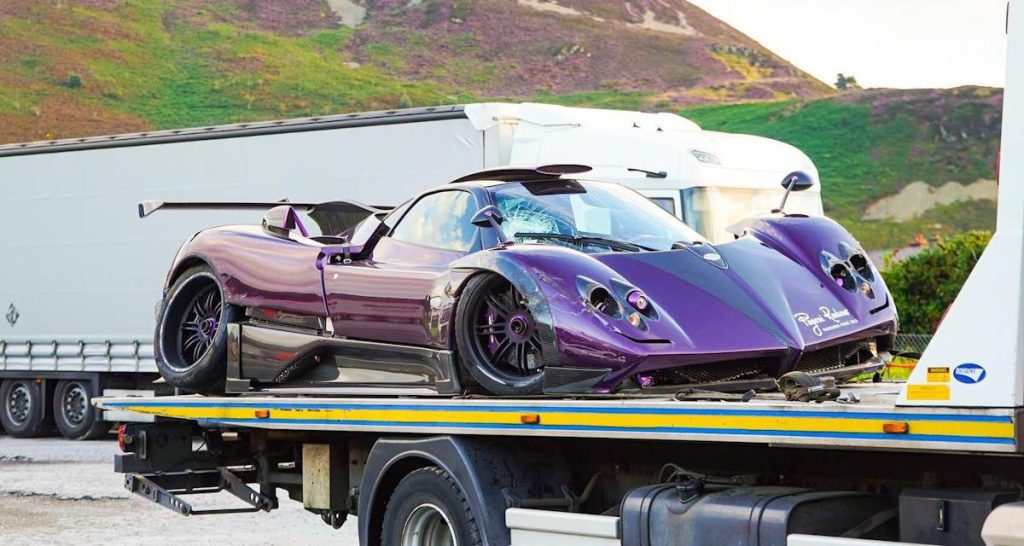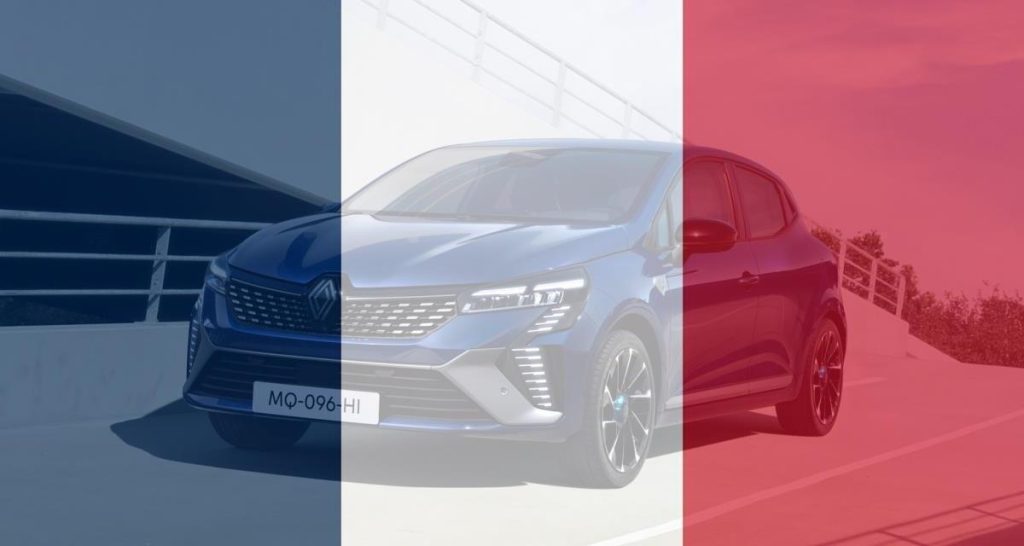Large Chinese technology companies are suffering from their delay in the field of electric vehicles.
Their push into the world’s biggest auto market is being hampered by government efforts to rein in an electric vehicle industry that has grown at a breakneck pace thanks to years of generous subsidies. But as consumer demand falls and Beijing’s strict rules on production licensing persist, market entrants are being pushed to enter into partnerships with licensed manufacturers, or to change their plans altogether. ‘business.
A license that imposes alliances
The most difficult obstacle to overcome is obtaining the permit necessary to manufacture an electric vehicle. China has granted only a handful – including to industry newcomer Hozon New Energy Automobile – since July 2017, when it tightened rules to contain overcapacity.
Subsequent changes in 2022 required electric vehicle companies as well as the companies to which they contract production to both have a manufacturing license, making things even more difficult for outsiders wanting to enter the sector.
In practice, it’s even more difficult, because the National Development and Reform Commission – one of the two bodies that must greenlight a manufacturing license – has halted approvals for transactions that would involve the transfer from one company’s license to another, according to people familiar with the matter, who asked not to be identified discussing private deliberations.
New perspectives…
This is reshaping the landscape as companies increasingly look to technological breakthroughs in areas such as autonomous driving to improve their offerings to consumers.
Last month’s deal between Didi and electric vehicle maker Xpeng could be a sign of what’s to come. The latter’s purchase of Didi’s smart car development arm strengthens its technological know-how and will allow the two companies to launch a new brand next year, targeting the mass market.
This is a major change for the ride-hailing giant, which previously sought to acquire stakes in traditional automakers in order to obtain a production permit, but changed its approach because the prospect of obtaining Regulatory approval for any transaction involving a permit transfer was weak, the people familiar with the matter said.
And the end of the financial “wild west”?
Billions of dollars have flowed into China’s electric vehicle sector over the past decade, from established automakers and upstarts alike, sparking a wave of mergers, acquisitions and increasingly high-profile product launches. -tech. In 2019, when Tesla delivered its first Chinese-built cars, there were around 500 electric vehicle manufacturers in China.
This is the case for XPeng and Li Auto, which both acquired production permits from their targets under agreements approved before the rules were tightened. Others, like Nio, have chosen to outsource manufacturing to state-owned Anhui Jianghuai Automobile, which is licensed to make cars.
But the frenzy gave way to consolidation, with weaker players driven out by intensifying competition and tougher regulations, leaving behind a trail of bankruptcies, abandoned factories and fields of abandoned cars. Today, there are only around a hundred manufacturers left.
B to B and (semi) autonomous vehicle as new levers.
With such fierce competition, the scale required for EV makers to generate profits is higher, meaning years of cash burn for someone starting from scratch. It probably makes more sense for tech companies to focus on autonomous driving, connectivity and mobility services rather than moving into capital-intensive manufacturing.
Jidu is an example of how quickly businesses must adapt. The autonomous electric vehicle startup, backed by tech giant Baidu and Geely, unveiled an autonomous vehicle concept in June 2022, planning mass production this year.
Jidu has since deleted all messages relating to this project from his official WeChat account. In August, Geely said it had created another brand called Jiyue, of which Geely owns 65% and Baidu 35%. The partnership will launch an electric vehicle model under the new JI YUE brand, with deliveries expected to begin in the fourth quarter.
But not for everyone…
Indeed, others are still trying to keep their electric vehicle dreams afloat.
Jiangsu Niutron New Energy Technology is attempting a comeback by partnering with Dorcen Auto. Founded in 2018 by a former Huawei vice president, Niutron closed its doors last year and returned deposits to customers without delivering a single car because it had difficulty obtaining its license, a person told the aware of the situation.
In recent months, the Ministry of Industry and Information Technology approved the couple’s new EV model, paving the way for production.
Rox Motor, supported by Tencent, is working with Beijing Automobile Works to manufacture an SUV model. Rox Motor also counts IDG Capital and Coatue among its backers and was valued at around $2 billion in its latest funding round closed in early 2022, another person said.
Electric cars: when Xiaomi is ahead of Apple.
Smart phone giant Xiaomi, which has promised to make its own cars by 2024, is shaping up to be the next test for the industry.
The company, which in 2021 committed to investing about $10 billion over 10 years to make EVs, received approval from China’s NDRC to make EVs in August, but is still awaiting approval from the MIIT, Reuters reported last month, citing people it did not identify. The company may still have to work with Beijing Automotive Group to launch production, Bloomberg News reported in August last year.
Xiaomi may have to demonstrate that its partnership with Beijing Auto sells vehicles in order for regulators to allow the tech company to make its own cars, according to people familiar with the matter.
Xiaomi is building its own electric vehicle factory in Beijing and has told investors the first cars should be made early next year.
To be continued…



